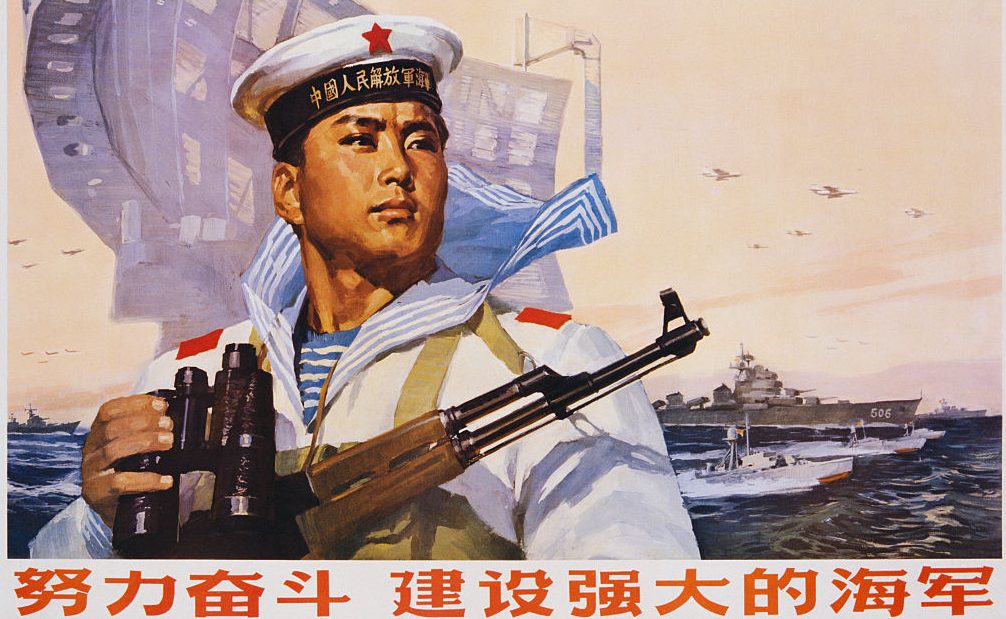The visit of Valdis Dombrovskis, the EU’s Trade Commissioner, to China and Beijing this week couldn’t come at a worse time for his hosts. He arrives bearing threats over the thorny issue of Electric Vehicles (EVs), but he had better be prepared for his hosts to be distracted by the state of the Chinese property market.
The geopolitical ramifications of the imminent collapse of property megacorp, Evergrande, whose share prices slid by 21 per cent on Monday and is now looking at freefall. Its debt liabilities alone, at $328bn, are bigger than the economy of Romania.
Though it is only the second biggest property operation in China, the simple fact that there are enough empty properties in China to give every single one of the 1.4 billion Chinese population a second home has frozen the Chinese market and caused the entire sector to teeter on the brink of collapse. Though Evergrande has been trying to fight since it first hit the financial buffers in the winter of 2021, these efforts seem to be coming to nothing.
Meanwhile in August, Country Garden, China’s biggest property outfit also chilled already lukewarm investor confidence in the sector by delaying debt payments.
Things are getting so bad that last month Nomura announced, “In addition to the apparent financial risks and their transmissions, the latest wave of defaults from wealth management firms on trust-related products is likely to cause some substantial ripple effects for the broader economy through wealth effects”. JPMorgan has talked about a “vicious cycle”.
All this is going on while Dombrovskis, operating under direct instruction from the electioneering von der Leyen, is attempting to rattle a trade sabre at the Chinese.
This is over their dumping of EVs onto the global market which threatens the still immature European EV production. German, French and Italian manufacturers are looking at their own vast investments in the sector, already threatened by the push back of the combustion engine (ICE) ban to 2035.
The problem the EU faces in these negotiations is that the only part of the Evergrande empire that remains relatively functional is the China Evergrande New Energy Vehicle Group, which was able to restructure its debt in May, partially because of the self same subsidised production that Europe is now scared of.

Europe’s drive to investigate subsidies in the Chinese production market has been complicated by its incomprehension of Chinese political and economic support for Russia in its conflict with Ukraine. The Russian EV market is significant and currently China is the biggest player there, particularly as that market is closed to European firms.
The water is muddied further by the massive shopping spree that Chinese manufacturers made over the last 25 years in the European auto market, a spree that has brought much European technical knowledge to China.
Evergrande owns SAAB, Geely owns Volvo – resulting in the mind bending situation that the Swedish Government is looking at having a boycott of Volvo cars in Sweden.
It isn’t just Sweden, MG is wholly Chinese, Lotus is controlled by them, BMW produces its EVs in China as does Renault.
The 13 month investigation launched by the Commission is not perceived by the Chinese as a real threat, given the financial intermingling of the sector, and the fact that China has the dominant world position in the production of both EVs and batteries.
It can just sit there as European politicians argue with their own industry, while its dominance in the sector, and in international mobility through its EV production spike.
Continuing to pursue Net Zero targets, which despite the slight softening of the ICE ban until 2035 it continues to do, is giving the Chinese a shot in the arm.
Right now, China has the highest trade surplus with the European Union that it has ever done, at over $400bn. But these numbers, greatly boosted by EV exports, will recoil fast if the property morass fails to solidify.
All these rows about electric vehicles, though significant, are frankly secondary if the property collapse happens.
As with the famous idea that if America sneezes Europe gets a cold, today the looming property crunch virus in China could cause devastation to global markets.
On the plus side it could reduce China’s support for Russia. But it could also have the worrying effect of China needing to quieten a restive and economically straightened public: think Taiwan. That virus, if not inoculated against soon, could make the economic devastation caused by Covid to look like a walk in the park. Frankly nobody will be able to afford EVs, subsidised or not.






War with China is now more likely than not